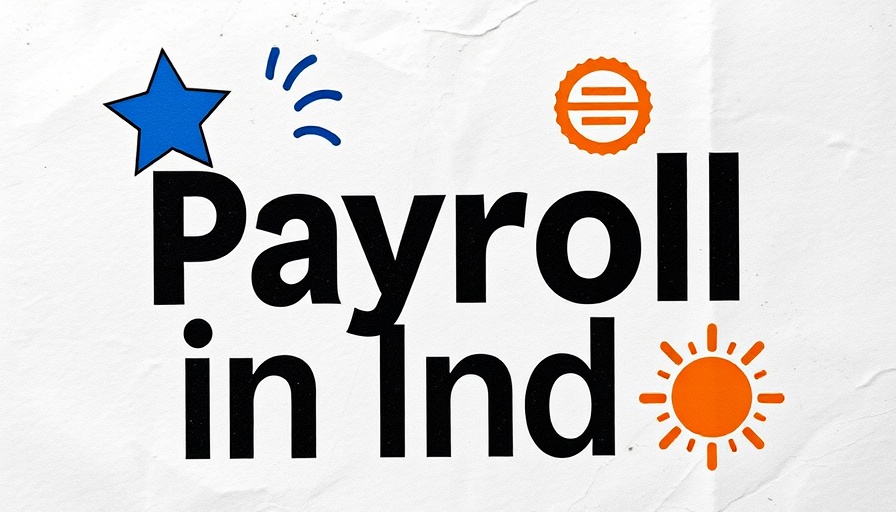
Navigating Payroll Complexity in India: A Must for Employers
As India continues to emerge as a top destination for businesses looking to expand operations, the necessity for a solid understanding of local payroll complexities cannot be overstated. Catering to a vast pool of skilled labor is attractive, but navigating the diverse regulatory environment poses noteworthy challenges. As 2025 approaches, the landscape of payroll in India becomes crucial for employers aiming to remain competitive and compliant.
Understanding Payroll Taxes: Key Contributions
When managing payroll, familiarizing oneself with the essential taxes and contributions is paramount. Among these, the Provident Fund (PF) stands out as a mandatory retirement savings scheme designed for salaried employees, enforced by the Employees' Provident Fund Organisation (EPFO). Employers, particularly those with more than 20 employees, are required to contribute significantly to this fund, ensuring long-term employee benefits. Understanding the intricacies of PF, along with the Employee Pension Scheme (EPS) and Employee State Insurance (ESI), is vital for building a sustainable workforce.
The Role of Professional Tax in Payroll Management
Professional tax, levied by state governments, adds another layer to the payroll puzzle. The regulations vary significantly across states, which can be daunting for businesses operating in multiple regions. For instance, in Maharashtra, the annual cap reaches ₹2,500, while Karnataka imposes a monthly fee of ₹200. Ensuring accurate deductions and remittances is essential for compliance and fosters a culture of trust within the team.
Pushing for Compliance: A Strategic Priority
Beyond mere compliance, investing in robust payroll strategies reflects positively on a company’s culture. As your organization scales, the approach to payroll and tax management becomes a cornerstone of efficient operations. With innovative technologies, including AI in HR, companies can streamline payroll processing, ensuring accurate payments and regulatory adherence. This not only reduces administrative burden but also enhances employee satisfaction.
Leadership and HR: Building a Resilient Strategy
The interplay between HR practices and payroll management cannot be ignored. Strong leadership is essential to fostering a positive workplace culture, particularly as changes arise in regulations and market dynamics. Embracing transparency in payroll practices boosts morale and reinforces company values, ensuring that your team feels valued and secure. As you navigate the complexities of payroll, remember that a resilient strategy is built on open communications and adherence to best practices.
Taking Action: Resources and Tools for Employers
To embark on the journey of payroll management effectively, consider leveraging tools and platforms that simplify compliance and payroll processes. Many organizations find value in investing in HR software that automates tax calculations and filings, which can save both time and resources. Furthermore, continuous education on legal obligations related to payroll is invaluable as regulations evolve. By staying informed, employers can make proactive decisions that positively impact their operations.
As 2025 draws near, the urgency to refine payroll practices in India is clear. Employers must not only focus on compliance but also adopt a strategic approach that enhances employee satisfaction, thereby supporting organizational growth. Embrace the tools, practices, and insights available to ensure your team will thrive in the rapidly changing business environment of India.
 Add Row
Add Row  Add
Add 



Write A Comment